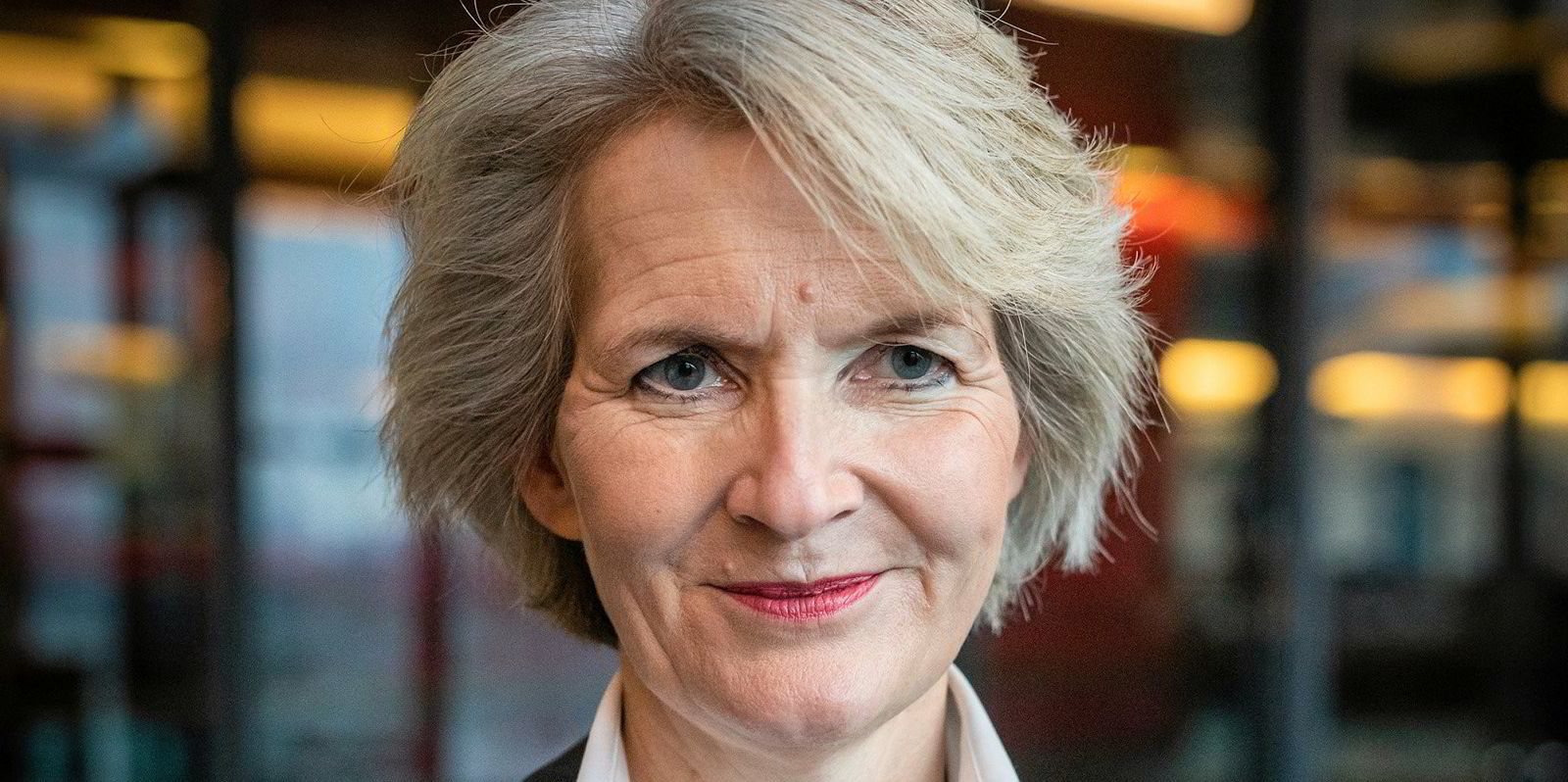German shipping is “back on track”, but companies should reinvest their profits smartly to deal with fresh challenges.
That was the message issued by Gaby Bornheim, president of the German Shipowners’ Association (VDR), to gentle applause in Hamburg today.
Speaking at the keynote address of the Marine Money conference, Bornheim said German shipping organisations have been doing better economically for some time.
Companies were benefiting from the stability that has finally returned to the shipping markets, she said.
And since the earning prospects are good — especially in container, bulk and general cargo shipping — banks and investors are also starting to grow more interested again.
“But one or two good years won’t be enough for the challenges that lie ahead,” she said.
“Long-term stability is important, and so is having a smart strategy for investing the profits generated in the ongoing period of robust markets.”
Bornheim singled out the war in Ukraine, Covid-19 and climate issues as the three major challenges facing the industry.
Sanctions imposed as a result of the war meant that shipping was likely to play a much more important role in transporting energy.
Germany is in the process of completely reconfiguring its import infrastructure for LNG, with a clear focus on sea transport.
“This war must come to an end,” Bornheim said. “But the markets for shipping will have changed before that eventually happens — and for a long time to come.”
The pandemic has had an impact on the crew industry and surging demand for shipping.
But Bornheim warned: “We as an industry should also not count on seeing this current boom in demand — which is energising our businesses — last forever.”
She said the greatest challenge in the long term was the issue of climate protection.
“At least in my experience, the only companies that will still be able to get ship financing in the future will be those that are clearly committed to climate protection,” Bornheim said.
That will require a revolution in fuels that the shipping industry cannot do alone, she added.
Bornheim said a “collective effort” would be needed to handle the enormous financing needs to be created to renew the fleet.
In five years at the latest, she said shipowners around the world will have to start thinking about replacing a large share of their old vessels with new ones.
“Will we be able to pull off this collective effort?” she asked. “Yes, of course, we will — as long as we truly want to.
“And as long as there are sufficient and targeted funding opportunities to build a more efficient, climate-friendly merchant fleet.”








